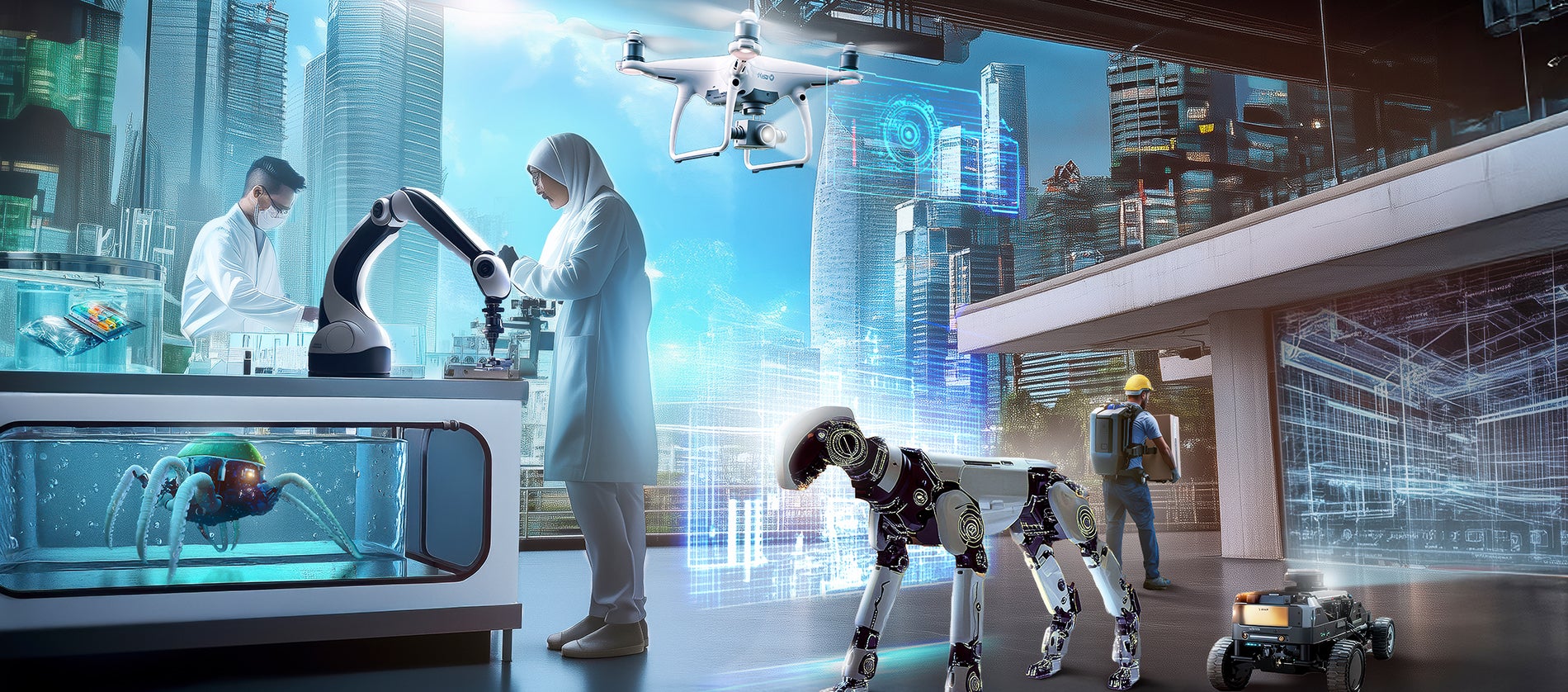
Dear Reader,
Welcome to the first CDE Research Newsletter for 2025!
We are excited to kick off our first issue with a topic that will be a cornerstone of innovation for the NUS CDE community: Robotics!
The field of robotics is vast, and covers highly diverse topical domains that span artificial intelligence, built environment, mechanical engineering, biomedical engineering, electrical and computer engineering, design, and beyond. With regards to applications, everything from healthcare to drones, and construction to disaster relief are poised for major advances due to innovations in robotics.
Importantly, the continued implementation of new robotics technologies into everyday operations across industries will also have far-reaching impact in public policy and the social sciences.
Bridging ideation with real-world impact is a hallmark of NUS CDE, and we’re excited to feature our colleagues’ amazing work in robotics as we kick off another exciting year from our community. Enjoy!
All the best,
Dean Ho
Editor-in-Chief
JANUARY ISSUE

Teaching soft robots self-awareness
Soft robots with human-like perception can anticipate sensory inputs, detect contact and adapt dynamically, paving the way for applications in autonomous exploration and precision-driven medical procedures.
Read More | PDF Download

A robust robotic support system
Driven by a differential series elastic actuator, a novel back-support exoskeleton aids users during lifting tasks, easing strain without adding muscle activation to the back and legs.
Read More | PDF Download

Soft robots take on hard tasks
Soft, robust miniature robots powered by fluid kinetic energy can traverse tricky terrains at impressive speeds, offering a valuable new tool for search and rescue operations.
Read More | PDF Download
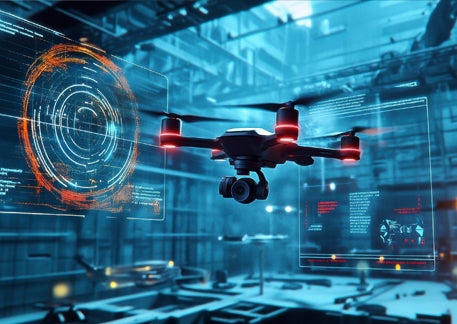
Lean, mean flying machines
A fast-adaptive estimator for robust flight control draws from the best of both deep-learning techniques and conventional control algorithms to improve drone performance.
Read More | PDF Download
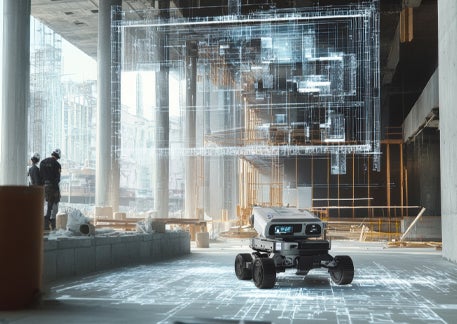
Helping robots find their way around the construction maze
By improving how unmanned ground vehicles see and navigate complex, cluttered construction sites, automation is set to transform tasks like site mapping and monitoring.
Read More | PDF Download
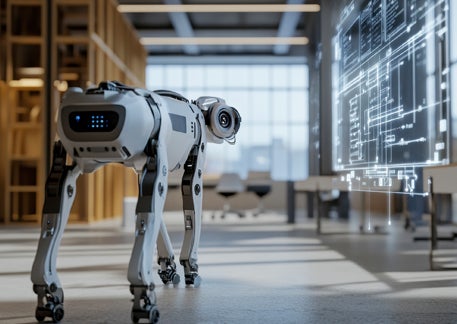
Automating 3D scanning of built environments
By integrating building information with indoor spatial data, robots are equipped with the capability to navigate and map complex indoor spaces more efficiently, advancing how industries capture the digital representation of the built environment.
Read More | PDF Download
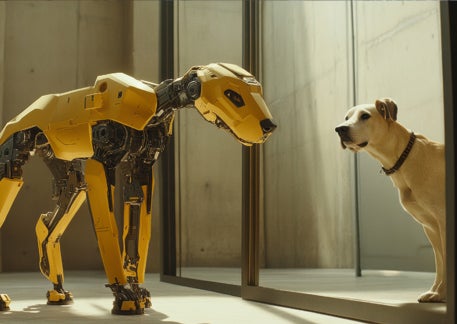
Teaching robodogs new tricks
Modelled on the neural control systems of animals, a new layered control framework enables legged robots to navigate complex terrains with greater agility and precision.
Read More | PDF Download
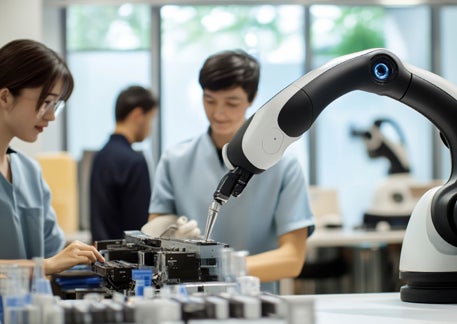
Robot safety a top priority
Designing safe, reliable and human-centric robots is a growing priority as they become an integral part of daily life.
Read More | PDF Download

Teaching soft robots self-awareness
Soft robots with human-like perception can anticipate sensory inputs, detect contact and adapt dynamically, paving the way for applications in autonomous exploration and precision-driven medical procedures.
Read More | PDF Download

A robust robotic support system
Driven by a differential series elastic actuator, a novel back-support exoskeleton aids users during lifting tasks, easing strain without adding muscle activation to the back and legs.
Read More | PDF Download

Soft robots take on hard tasks
Soft, robust miniature robots powered by fluid kinetic energy can traverse tricky terrains at impressive speeds, offering a valuable new tool for search and rescue operations.
Read More | PDF Download

Lean, mean flying machines
A fast-adaptive estimator for robust flight control draws from the best of both deep-learning techniques and conventional control algorithms to improve drone performance.
Read More | PDF Download

Helping robots find their way around the construction maze
By improving how unmanned ground vehicles see and navigate complex, cluttered construction sites, automation is set to transform tasks like site mapping and monitoring.
Read More | PDF Download

Automating 3D scanning of built environments
By integrating building information with indoor spatial data, robots are equipped with the capability to navigate and map complex indoor spaces more efficiently, advancing how industries capture the digital representation of the built environment.
Read More | PDF Download

Teaching robodogs new tricks
Modelled on the neural control systems of animals, a new layered control framework enables legged robots to navigate complex terrains with greater agility and precision.
Read More | PDF Download

Robot safety a top priority
Designing safe, reliable and human-centric robots is a growing priority as they become an integral part of daily life.
Read More | PDF Download

Teaching soft robots self-awareness
Soft robots with human-like perception can anticipate sensory inputs, detect contact and adapt dynamically, paving the way for applications in autonomous exploration and precision-driven medical procedures.
Read More | PDF Download

A robust robotic support system
Driven by a differential series elastic actuator, a novel back-support exoskeleton aids users during lifting tasks, easing strain without adding muscle activation to the back and legs.
Read More | PDF Download

Soft robots take on hard tasks
Soft, robust miniature robots powered by fluid kinetic energy can traverse tricky terrains at impressive speeds, offering a valuable new tool for search and rescue operations.
Read More | PDF Download

Lean, mean flying machines
A fast-adaptive estimator for robust flight control draws from the best of both deep-learning techniques and conventional control algorithms to improve drone performance.
Read More | PDF Download

Helping robots find their way around the construction maze
By improving how unmanned ground vehicles see and navigate complex, cluttered construction sites, automation is set to transform tasks like site mapping and monitoring.
Read More | PDF Download

Automating 3D scanning of built environments
By integrating building information with indoor spatial data, robots are equipped with the capability to navigate and map complex indoor spaces more efficiently, advancing how industries capture the digital representation of the built environment.
Read More | PDF Download

Teaching robodogs new tricks
Modelled on the neural control systems of animals, a new layered control framework enables legged robots to navigate complex terrains with greater agility and precision.
Read More | PDF Download

Robot safety a top priority
Designing safe, reliable and human-centric robots is a growing priority as they become an integral part of daily life.
Read More | PDF Download
PDF DOWNLOAD
Download the full issue below.
EDITORIAL BOARD
ISSUE 4
Editor-in-Chief:
Editorial Board Members:
SUBSCRIBE
Click Here to subscribe to our newsletter.
Images on this website were created with the assistance of DALL·E 2



